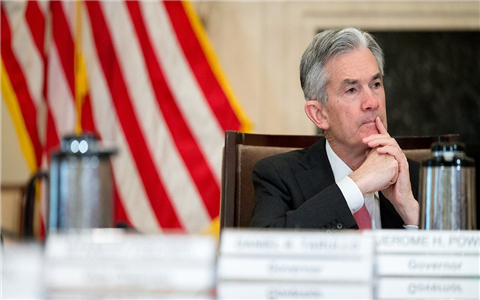-
 瑞士小记者 Shelly的上海W外滩酒店六个月实习心得
瑞士小记者 Shelly的上海W外滩酒店六个月实习心得
瑞士小记者 |上海W外滩酒店Shelly的六个月实习心得 我是一名在SHMS(瑞士酒店管理大学)就读大一的学生。去年11月份,我通过了上海外滩W酒店的三轮实习面试。从今年的2月份开始,我前往W酒店的艳中餐厅,完成了这六个月的毕业实习。就我自己而言,相比于读书,上班让我更有成就,也更具充实感。 在还没有去实习之前,我非常地紧张和激动。因为这是我第一次出来工作,对于这个全新的体验我有一点儿期待和不知所措。想着能够靠自己的努力拿到工资就是一件很激动的事情。一开始进入餐厅的时候,我非常地内向,不管是面对客人还是同事,我都不怎么愿意开口和他们交流。并且,我一直觉得自己是慢热型的人,很多东西都需要慢慢适应。刚开始工作的头一个月,我甚至有考虑过换部门,不当服务员,而调去别的部门,坐在办公室里的那种。因为我觉得自己害怕与客人沟通,他们和我说话的时候我会很慌张,进而导致我认为自己不适合做这个岗位。害怕常常会被批评,被责备甚至是被嫌弃。 有这么一段时间,我经常在否定自己,是不是自己真的没有实力,真的就像他们所说的我什么都不会吗?后来我才慢慢地认识到,我不敢和客人沟通的原因,是因为我对于岗位的陌生而产生了恐惧感,我就是不敢踏出这一步,生怕自己做错了事情遭受指责。其实做错了事情并不可怕,反而能从中吸取到教训、并收获成长。社会和学校真的有很大的不同,在学校里老师会护着你、包容你,但社会不一样。记得有一次我迟到了,因为地铁坐错才导致迟到了3分钟。当时的我并没有觉得什么,只想着到时候解释一下,经理应该就会谅解我了吧。结果等我到了餐厅,经理很严肃地找我谈话,我的第一反应就是解释说我是因为地铁坐反了,在员工电梯又等了很久。当时,餐厅经理的回答直接让我哑口无言,她说:是我导致你坐错地铁的吗?是我的原因让这个电梯慢的吗?这个时候,我才感觉到不要找任何借口,迟到了就是迟到了,没有什么可以解释的。 我其实是拖延症比较严重的一个人,想到一件事情不会立刻马上行动。但是通过这一次实习,我发现了有很多事情只是我们自己想得太困难化了,觉得做去这件事情会很麻烦所以才想要一拖再拖。但事实上,再麻烦的事情,只要你愿意去做,有条理地去试着完成,反而会比把事情都堆在一起最后去做来得轻松。 还有就是团队合作与放宽心态真的很重要,曾经我进入过一个误区:因为我们工作之前都会开个会,报一下各自在酒店餐厅的哪个位置工作。我想当然地以为每个人只要做好自己位置上的工作就行了,也不会想到要帮助别人。但是其实不是,因为整个餐厅在运营的时候,大家都要互相帮忙,而且需要主动去帮助别人。因为主动帮助别人,别人还会心里感谢你。但是如果等到别人来叫你的地步,可能语气里会多了一份命令,从而导致各自心里都会产生一些不愉快。 但其实这也不需要有什么抱怨,就当是给自己一点锻炼的机会,走出你的舒适圈。而且有时候听到一些负面信息,要学会及时地调整心态,不要什么都记在心里和自己钻牛角尖。我感觉实习有一种魔力,别看平时我有多期盼可以早点下班或者休息,但真的等到要离开的那一天,我又会特别的不舍。 撰稿人:Shelly 瑞士 SHMS 酒店管理大学 2019年9月 该文章转载自雷梭勒家族办公室,如有侵权,敬请告知删除。 English Version Six month internship in W Hotel Shanghai-The Bund I’m a BA1 student in SHMS(Swiss Hotel Management School), I passed internship interview of W Hotel Shanghai The Bund in November 2019, and I applied the YEN CHINESE RESTAURANT of the W Hotel. In 13th February, I started my internship.When I was young, in my opinion, I think each company only has one interview. But I’ve participated in three rounds of interviews there. The first one is with HR, the second one is by restaurant manager and the third one is facing the HR manager. Compare with work and study, I prefer to work because when I was working I can get more fulfillment and a sense of fullness.Before I gone to internship, I was very nervous and exciting. Why I was nervous because this is my first time to go to work, and it is a brand new experience. And exciting is because I can earn money by myself.At the beginning, I can’t face to customers and colleague. I felt it is much embraced and I thought I was an introvert person; I need to spent time for changing myself. In first month, it was the hardest time for me, even I wanted to change department, I wanted to work in office because I was afraid to communicate with customers.When they asked me questions, I got no idea what I have to say. What’s more, the supervisor usually criticism and censure me. So during that period, I became very unconfident. Later I realized that I have that ability to talk with customs, I just unfamiliar with that job. I was too afraid to made mistakes. Actually, when you make mistakes, it is not that serious problem and you have to be happy because you can be better when you solve those problems.There are different between society and school. In school, if you make a mistake, teacher will give you a chance to listen to you and forgive you. But in society, nobody will think about you as a student.For example, once, I was late about 3 minuets because I’ve taken a wrong subway. I didn’t take it very serious. I thought I just need to explain it and my manger can understand. Therefore, I went to the restaurant, our manager called my name, and then I explained. However, she didn’t listen to me and said: it’s none of my business; I only knew you are late. It is my cause result in your late? During that time, I understand the different between school and society. Don’t find any excuse to your mistake, just solve the problem and never do it again.Im actually a procrastinator. When I remember one thing that I have to do, I won’t do it immediately. But through the internship, I found, why I will be a procrastinator is because in my mind, I think that this matter maybe very difficult to solve. Actually it is not that difficult if you take time to try solving it, step by step.Moreover, teamwork and have a good mentality are important, too. I was in a misunderstanding: Before we started to work each day, we had a briefing. During the briefing, manager had to assignment of area for us. So I thought, everyone just need to look after their own area, don’t have to help other people when is busy or not.Actually when the restaurant is opening, everybody has to help each other, and you have to active to help all the people. Because when you active to help people, that person will think you are very kind and diligent. But if someone call you to do something, then it will become a kind of obey. It will result in some bad feeling for both.In fact, you don’t have to complain, when people ask you to do something, you just think that is a change to challenge yourself, walk out your comfortable area. When you heard some negative information, you have to adjust of your mentality in time. I feel this period of internship has a kind of magic power. No matter
how much I look forward to getting off work earlier or having a rest
after whole day’s work, when it really comes to the day of leaving, I
will be particularly reluctant to give up. 该文章转载自雷梭勒家族办公室,如有侵权,敬请告知删除。 Sooswiss为您提供 瑞士方向私人管家式的定制服务: 1)家族传承 2)财富管理 3)瑞士投资 4)居留计划 5)税务优化 6)家族治理 更多资讯请登录网站 www.sooswiss.com
-
 《传承宝典》23——固定收益信贷, 本年度展望
《传承宝典》23——固定收益信贷, 本年度展望
《传承宝典》23固定收益信贷, 本年度展望 尼古拉是Stonehage Fleming家族办公室投资管理部门的领导人,他全面负责所有独立固定收益的管理、现金管控下的投资组合、以及对第三方固定收益基金投资的选择和监控。他还领导着基金与证券选择委员会,并拥有超过10年管理固定收益投资组合的经验。尼古拉于2013年9月加入Stonehage Fleming 集团并担任投资经理。2000年,他在苏黎世的瑞银(UBS)私人银行开始了自己的职业生涯。2002年,他跳槽到伦敦的瑞银财富管理公司,加入了投资组合管理团队,管理着多资产类别的投资组合。尼古拉拥有英国华威商学院的经济学和金融学硕士学位,以及IMC和PCIAM专业资格证书,同时还是英国特许证券与投资协会(CISI)的特许会员。 截至19年中期,固定收益市场——信贷和利率表现良好。今年上半年,高收益债券市场出现了20多年来的最佳表现。投资及债券也表现强劲,受益于政府债券的上涨。上述两者的整体回报率都在7%-9%。新兴市场的强势货币债券(即保值货币债券,多为欧美国债)的回报率为8%,而新兴市场本币债券也表现强劲——截至6月底上涨了约6%。如果我们把时钟拨回到2018年第四季度,信贷市场似乎正分崩离析。高收益债券和杠杆贷款市场都出现了大幅下跌,甚至投资级市场也出现了一些疲软。由于投资者们越来越担心全球经济状况、贸易战和货币政策收紧的影响,信贷息差扩大。在2019年的头几个月里,一切都变了。发达市场央行的措辞变得越来越温和(鸽派),允许了风险资产的止跌回升,以及政府债券收益率的下降。美联储(FED)主席杰罗姆•鲍威尔(Jerome·Powell)公开讨论了降息的可能性,市场则完全消化了7月底首次降息的预期。与此同时,欧洲央行(ECB)似乎也在着手转向降息,其结果是欧洲核心国家的国债收益率再次大幅下跌。 我们目前所处的环境是,约有12万亿美元资产(约占Bloomberg Barclays全球综合总基准的1/4)购买交易了收益率为负的债券。这不仅会将投资者赶出其自然栖息地,还会在投资者寻求正收益之际,为信贷市场提供支持。信用指标很好地反映了公司债券市场的健康状况。美国和欧洲企业的债务收益和利息覆盖率等指标表现良好,在总体上,企业都似乎相当健康(苹果公司、迪士尼、可口可乐等都正在忙于发债)。我们还注意到,“到期墙”(意指:某一年到期的债务数量) 间隔良好,短期内将仅存在有限数量的公司债务到期。我们再次处在利率不断走低的环境中,这对企业债务来说是件好事。企业将能够以较低的成本对债务进行再融资,并维持其利率覆盖率;我们预计违约率更不会大幅上升。尽管2019年剩余的时间不太可能出现这种回报,但我们迄今已看到,我们相信固定收益市场在未来一段时间内仍将受到支撑。 English Version Nicholas is a Director of Stonehage Fleming Investment Management, he has overall responsibility for both the management of all segregated fixed income and cash management portfolios, as well as the selection and monitoring of investments in third party fixed income funds. He also heads up the Fund and Security Selection Committee and has over 10 years’ experience managing fixed income portfolios. Nicholas joined the Stonehage Fleming Group as an Investment Manager in September 2013. He started his career at UBS Private Bank in Zurich in 2000 and moved to UBS Wealth Management in London in 2002 joining the Portfolio Management team to manage multi-asset class portfolios. Nicholas holds an MSc in Economics and Finance from Warwick Business School, as well as the IMC and PCIAM professional qualifications and is a Chartered Fellow of the Chartered Institute for Securities and Investments. Fixed income markets - credit and rates - have performed well to the mid-point of the year. The first half of the year saw the high yield bond market enjoying its best performance for over two decades. Investment grade bonds also performed strongly, benefitting from the rally in government bonds. Both have seen returns between 7%-9% across the board. Emerging market hard currency bonds have returned 8%, while emerging market local currency bonds also performed strongly up around 6% to the end of June. If we roll the clocks back to Q4 2018, credit markets seemed to be falling apart. The high yield and leveraged loan markets both saw significant falls and even, the investment grade market experienced some weakness. Credit spreads widened, as investors grew increasingly concerned about the state of the global economy, the impact of trade wars and monetary policy tightening. During the first months of 2019, everything changed. Developed market central bank rhetoric turned increasingly dovish, allowing risk assets to rally and government bond yields to drop. In the US, Federal Reserve Chairman Jerome Powell, openly discussed the potential for rate cuts with the market fully pricing in the first cut for the end of July. Meanwhile the European Central Bank too appears to be maneuvering towards lower rates and, as a result, yields across core Europe have once again gone deeply negative. We are now in an environment where there are circa $12tn of assets – around a quarter of the Bloomberg Barclays Global Aggregate benchmark – trading with negative yields. This has the effect of pushing investors out of their natural habitats but also lending support to credit markets as investors seek out positive yields. Credit metrics give a good indication of the health of the corporate bond market. Metrics such as earnings over debt and interest coverage for companies across the US and Europe are holding up well, and companies overall appear to be reasonably healthy (Apple, Disney, Coca-Cola and others are busy issuing bonds now). We also observe that the ‘maturity wall’- an indication of the amount of debt maturing in a given year - is well spaced out, with a limited amount of corporate debt coming due in the short term. It is positive for corporate debt that we are again in an environment where interest rates are moving lower. Companies will be able to refinance their debt at cheap levels and maintain interest coverage; we do not expect to see a significant increase in the default rate. Although the rest of 2019 is unlikely to see the sort of returns, we have seen so far, we believe fixed income markets will remain supported for some time to come. Sooswiss为您提供 瑞士方向私人管家式的定制服务: 1)家族传承 2)财富管理 3)瑞士投资 4)居留计划 5)税务优化 6)家族治理 更多资讯请登录网站 www.sooswiss.com
-
 Vaudijon(福地荣)城堡庄园,瑞士家族文脉的一张名片
Vaudijon(福地荣)城堡庄园,瑞士家族文脉的一张名片
Vaudijon(福地荣)城堡庄园 瑞士家族文脉的一张名片 在日内瓦通往纳沙泰尔的火车和高速上,一眼就能望见黄色石墙明亮地闪耀着,Vaudijon(音译为:福地荣)城堡庄园是如此引人注目,它属于瑞士国家级“历史文化保护建筑”之一,是当地家族文脉传承的一张名片。宅邸的观景台突出于四周环绕的葡萄园,呈皇冠形,位于山顶,雄伟地俯瞰着Areuse山谷自然保护区,又毗邻纳沙泰尔湖。总占地12公顷的庄园,包括4.5公顷的葡萄梯田,附有一个草木生气盎然、喷泉古树林立的大花园。这是一座建于19世纪初的经典法式贵族建筑,另大城市里的众多豪宅都不复艳羡。Vaudijon城堡庄园由著名印度棉布贸易巨贾Cortaillod的后裔Jean-Pierre DuPasquier建造,于2012年被来自法国的Laurent Lozano(常年担任LVMH集团的轩尼诗干邑品牌研发总监)和妻子Carine Palu(显赫家族背景参见文末)买下。在茂盛的葡萄田园里能找到莎斯拉、黑皮诺和霞多丽等诸多品种,结实的土壤质地允许匠人驭马耕种,将有机农业与骑士精神古今合璧、同框彰显。这座两百年的大庄园,历史上并非与纳沙泰尔州的某一大家族有关,而是好多家:DuPasquier,Bovet,Bonhôte,Morin,Morf……这些个老牌贵族先后拥有过该城堡,并世代繁衍、生息于此。城堡最初的历史曾得益于印度棉花纺出的涂料织物,在十八世纪为纳沙泰尔赢得了世界性的声誉,也使得Jean-Pierre DuPasquier“不得不继承相当多的财富”。但他更多地致力于全身心建造葡萄庄园,乃至为了这份情怀,放弃了印度工厂的股权。 1791年,已在当地购得两片葡萄园的他,建筑构思的第一个灵感来自伯尔尼的雕刻艺术。城堡委托当时知名的法国建筑设计师Jacques-Francois Blondel设计,其雏形借鉴了18世纪最为杰出的法国建筑产物,如巴黎的Bagatelle城堡、贝桑松的Salm大厦和Intendance大酒店等,品位独具一格。建筑石材品质精良,圆形客厅的装饰浮雕出自著名雕刻家塞尔-大卫-卡拉梅,花纹主题是春、夏、秋的寓言,象征着映衬在彩虹之下、常葆工作热情、丰腴婀娜的希腊丰收女神。经过了首任领主近30年的精心营造,终于在1827年落成为当时的地标。在Vaudijon城堡的所有者中,Eugene Bonhôte无疑是最著名的。他是一名律师,自由党议员,1912-1924年曾担任瑞士联邦委员,被昵称为“宪法监护人”。1883年于该城堡向著名的日内瓦语言学家费迪南德·索绪尔(Ferdinand de Saussure)签署的两封信件被国家博物馆珍藏。他的妻子Chambrier,则来自纳沙泰尔州的另一个杰出家族。这座房子在20世纪初由Morin家族占据,后在1958年出售给工业家Ernest Morf。他是手表制造商Montremo(其获专利的手表带有Vaudijon城堡标志)的创始人,至今仍生产表盘。他更是一位华丽建筑和古老石头的爱好者,还收购有Prangins,Champvent等多处别墅城堡。他们父女都是爱马人,曾出版过《Quelle vie de cheval!》一书,时常在城堡花园内双骑翩翩、盛装舞步,家族幸福地生活到2000年。新千年后,一对荷兰-南非籍夫妇Everhard Vissers和妻子Brigitte,买下该城堡并保存十年,他们更在此地创立了瑞士高级腕表Magellan(麦哲伦)。该品牌以探险家费迪南德.麦哲伦命名,他是16世纪首位完成环球旅行的伟大航海家,并第一次证明了地球是圆的。设计师大胆地把圆形的地球仪设计在手表之上,蓝宝石穹顶完全密封,以整个3D地球为刻度,让人们时刻纵览美丽的星球。当被问及为何选中Vaudijon庄园时,现任主人Laurent Lozano的回答简洁明了:“爱种葡萄、爱看飞机、爱赏湖光山色”。夫妇俩精心栽培、酿造美酒之余,与4个孩子共享阿尔卑斯田园牧歌——Life as a Taster(生活宛如品酒家)就是最开心快乐的城堡生活,这无疑也是令全世界众多富豪公卿,纷纷选择隐居于纳沙泰尔州的缘由。 Vaudijon(福地荣)葡萄酒庄园因其自然地理优势、历史艺术价值和完整的延续性,在Colombier地区更显得矜贵上乘和绝无仅有,被誉为建筑界“浑然天成的大师之作”。Lozano夫妇俩保留了最初的法国路易十六建筑风格,没有刻意改造外墙。内饰布局既保持了原有的新古典主义格调,又提供了必要的舒适性。城堡有一个皇冠型的“观景台”,能南眺机场的螺旋桨小飞机起降,东览800米处的纳沙泰尔湖,充分享受阳光和闲适。主楼占地433平方米,摆满艺术品与藏书、圆弧形的英伦俱乐部图书馆(原汁原味的福尔摩斯风格),在瑞士境内是独一无二的。一架螺旋楼梯盘旋在沙龙前厅,极其高挑的圆形客厅气宇轩昂,拼花地面、细木镶嵌、古董家具、三角钢琴、石灰岩天花板、手绘壁画和火炉烟道等完美无缺地从18世纪保存至今,增添卓绝的品质。大小不一的20个房间参差错落:9间卧室(均设有独立卫生间)、办公室、休息室、餐厅、厨房、工作间。顶楼则为遮挡式顶棚,晴天可打开变为露天阳台,总居住面积1300平方米。庄园的五大功能俱全:居住、办公、酒业、养马、老爷车节(详见 https://a-e.li/reports/vaudijons-classic-motors)。农场仓房为一栋三层建筑,包含拱穹顶地下酒窖(崭新的温控不锈钢罐和并列码放的橡木酒桶)、一楼为酿酒厂、二三楼为员工住房和库房,占地面积350平方米。庄园附带一个独立马厩和骑马场,可以容纳四匹爱马,还为兽医配备了马匹传送带。游泳池也按原样保留在花园的曲径通幽处。Vaudijon庄园自产5款有机葡萄酒,由波尔多完成学习、环游世界并在轩尼诗酒业与葡萄、干邑和香槟积累不下数十年经验的Lozano夫妇,亲自监测土壤、指导栽种并精心酿造,全程遵循生物农技和有机模式,获得Bio Sussie和De Meter认证标签。目前的年产量为25,000至30,000瓶,其中包括西拉、解百纳、莎斯拉、黑皮诺、以及10%的橡木大桶发酵霞多丽品种。Vaudijon城堡品牌自从2014年以来屡获殊荣,业内声誉稳固提升,亦被称为:纳沙泰尔葡萄酒复兴的熔炉! 2019年7月,这对法国夫妇又购入了邻村的另一栋中世纪城堡Château Gorgier,并在那里同女方的大家庭定居。Laurent Lozano的妻子Carine Palu系出名门,是福布斯全球排名第125位(2016年后因故不再计入法国富豪榜,曾长期稳居前六)、坐拥163亿美元净资产的法国Pierre Castel家族二代成员。Castel Group(卡斯黛乐集团,http://www.castelchina.com)最早于1949年由9个兄弟姐妹在法国波尔多创立(与Vaudijon城堡的另一谐音“富弟兄”不谋而合),七十年来为法国葡萄酒发扬光大走向世界,为啤酒和软饮在非洲和亚洲地区的发展,贡献了不同凡响的力量。该集团在法国拥有多达21个葡萄园,在非洲存有1,600公顷的葡萄园土地,共建造了45家啤酒厂,每年生产6.4亿瓶葡萄酒,并在130个国家的市场中,每年销售46亿瓶各种酒类和饮料。 作为一家进入中国市场已经20年的葡萄酒企业,卡思黛乐一直引领着进口葡萄酒行业的发展。2017年卡思黛乐中国区销量同比增长17%,高于中国瓶装进口葡萄酒14%的增幅。从1998年进入中国起,1999年通过集团子公司设立“廊坊红城堡酿酒有限公司”为与张裕的合作打下基础;2001年共同推出张裕的核心产品“张裕卡斯特酒庄葡萄酒”;2003年设立上海代表处;2006年开始与经销商建立合作伙伴关系;2007年进口量达到260万瓶;2008年达540万瓶;2009年为10位合作伙伴的1,500多个分销商供货,进口量达1400万瓶,首支广告片登陆央视。2010年销量突破2000万瓶;2011年销量突破3000万瓶, 全新广告片登陆央视。如今在华销量已过亿瓶。天然、芬芳、甜蜜、醉人的葡萄美酒,正在纳沙泰尔湖畔的 Vaudijon(福地荣)城堡里恭迎您的光临品鉴。雷梭勒家族办公室可在24小时内安排城堡参访,以及特享最优的购买价格。该庄园距离日内瓦国际机场70分钟,仅需10分钟即可到达纳沙泰尔市中心,其所获权益可通过雷梭勒家族办公室与瑞士当地政府达成协议,中国企业家可通过税务打包方式,以低成本、高效快速地获得瑞士居留证。并有机会获得有效期为五年的瑞士长期居留证,之后的续签期限也为五年,详询请洽雷梭勒中国运营部。 该文章转载自雷梭勒家族办公室,如有侵权,敬请告知删除。Sooswiss为您提供 瑞士方向私人管家式的定制服务: 1)家族传承 2)财富管理 3)瑞士投资 4)居留计划 5)税务优化 6)家族治理 更多资讯请登录网站 www.sooswiss.com
-
 《传承宝典》22——管理您与银行关系的价值(下)
《传承宝典》22——管理您与银行关系的价值(下)
《传承宝典》22管理您与银行关系的价值(下) 作为一位英国家族办公室的负责人,Roelof 在管理高净值家庭和个人的全球利益方面拥有丰富的经验。他参与了许多不同的司法管辖区的商业活动、财富管理、财产梳理、艺术收藏和慈善事业。他一贯融入两代人或更多代之间,特别强调长期风险管理和协作决策。 Roelof 于2012年从德意志银行的伦敦分行加入Stonehage Fleming集团。他拥有会计荣誉学士学位,曾供职于毕马威会计师事务所,并于2007年获得英国特许会计师资格。他也是南非特许会计师协会(SAICA)和国际信托房地产从业者协会(STEP)的成员。 理解和预测银行的前景 大多数家庭只是对具体的信息类要求作出反应,而不是试图了解银行的要求并为满足这些需要做好准备。当一个问题的答案引发了另一项更深入的索求时,银行和客户一点一点地提取信息,这是令人沮丧的。银行处理这些事情的方式各不相同,现在明智的做法是与客户关系经理进行详细讨论,确定银行内哪些部门需要得到满足,以及他们在寻找的是什么。只要有可能与银行里的任何一位关键人物交谈,寻求直接接触这些人物并试图建立关系,都是完全明智与合法的。对于大多数情况复杂的家庭来说,改变思维定势是必要的。银行账户不应该再是他们认为理所当然的东西,而是他们为之游说的东西,就像去谈判贷款或筹集外部投资一样。不管喜不喜欢,他们都需要记住,银行是在把自己的名字和诚信借给这个家族,而这个家族在世界各地都从中受益,而在那些地方,这个家族的名字也许不为人知。第三方将更愿意与他们进行交易,因为他们认为银行已经承担了必要的检查。因此,银行承担了一定程度的风险,它需要评估这种风险,就像评估贷款申请一样。银行的风险不仅存在于客户家庭本身的总体诚信度,且存在于家庭的风险管理过程中的所有方面事务,包括当前和历史上他们收购企业的实际经历,当然可能与其家族中央企业相比较:规模更小、关联较远。即使使用最复杂的流程,银行也不容易事先指定它需要的每一项信息,直到它对整体情况有了很好的理解。正是出于这个原因,当这家人觉得自己已经满足了所有的初始要求时,银行有时不得不要求提供更多的信息。 对于现有的关系,家属需要了解,银行的要求可能会因为各种可能的原因发生变化,包括新规定、银行风险偏好的变化以及相关部门员工的变化。银行人员的高流动率是一个切实存在的问题,因为初来乍到的人往往不像他或她的前任那样理解环境,可能会开始提出更多问题。还应该理解的是,法规遵循(合规)过程中的许多筛选(甄别)过程现在都是自动化的,数据中的任何微小错误都可能抛出一个红旗,从而导致更深切的审查,以至于需要更多的信息。了解银行的需求将有助于这家人在同一个地方收集并维护好所有的、或大部分的必要信息,以满足他们的需求,并尽可能地预测他们的需求。 关键是要讲一个连贯的故事,能够支持家族及其所有企业的声誉和诚信,而不是银行必须一点一点地提取信息。即便是慈善基金会,理应得到充分的保护,不幸的是,它们过去也曾被不道德的经营者用来掩盖洗钱活动。 与银行沟通 首先,应与客户关系经理或开户人员进行一次讨论,以确定家庭银行交易可能触及的所有不同银行办事部门,他们需要在何种程度上直接了解情况,以及他们是否有任何特殊要求,视他们的管辖权或他们的职能来定。 例如,不同的司法管辖区、证券交易和银行交易的流程,其相互之间的要求,可能都会有所不同。许多银行现在提供或试图提供一项“全球护照”服务,该服务将使这家人能够在任何管辖区的任何银行分支机构开立账户,同时只需要提供最少量的额外信息,以满足当地的合规性需求。现在的建议是,争取与银行总部和其他有关部门的合规工作人员直接接触,接触的级别尽可能地高。这可能并不容易,因为合规人员被要求保持客观,但在大型和复杂的情况下,他们可能也会认识到:与客户或他们的顾问会面,可能是弥合他们理解上任何分歧的最有效方式。除此之外,最资深员工的流动率往往远低于实际水平,因此连续性的可能性更大。 建议每年更新所有相关数据,并要求银行对银行文件中的所有数据进行全面审查,以确保数据准确,因为即使是最小的错误,如果触发了系统中的一个小警告旗,也可能造成问题。这一审查将包括检查银行内部代码,以确定“共同报告标准(即CRS)”,这将有助于避免信息被发送到错误的司法管辖区的当局,有时还会带来较不幸的后果。English Version UNDERSTANDING AND ANTICIPATING THE BANK’S PERSPECTIVE Most families simply respond to specific requests for information rather than trying to understand the bank’s requirements and preparing themselves to meet those needs. It is frustrating for the bank, as well as the client, to have information extracted bit by bit, when the answer to one question provokes the need for a further request. Banks handle these matters in different ways and it is now wise to have a detailed discussion with the relationship manager to establish which departments of the bank need to be satisfied and what it is they are looking for. Where it is possible to speak to any of the key individuals in the bank it is entirely sensible and legitimate to seek direct access to these people and to try to build a relationship. For most families with complex circumstances, a change of mind-set is required. No longer should the bank accounts be something they take for granted as of right, but something they make a pitch for, just as when negotiating a loan or raising external investment. Like it or not, they need to remember that the bank is lending its name and integrity to the family and that the family benefits from that in all parts of the world, where the family name may not be known. 3rd parties will be more willing to transact with them because it is assumed the bank has undertaken the necessary checks. The bank is hence undertaking some degree of risk and it needs to appraise this risk, just as it would a loan application. The risk to the bank lies not just in the general integrity of the client family itself, but in the family’s own risk management processes across all aspects of its affairs, including the current and historical practices in businesses they have acquired, however small and remote they may be from the central family enterprise. Even with the most sophisticated processes, it is not easy for a bank to specify in advance every piece of information it requires, until it has a good understanding of the overall picture. It is for this reason that banks sometimes have to ask for yet more information when the family feels it has met all their initial requirements. For existing relationships, families need to understand that the bank’s requirements may change for a variety of possible reasons including new regulations, changes in the bank’s risk appetite and changes of staff within the relevant departments. High turnover of personnel in banks is a real problem, as someone coming new to a situation will often not appreciate the context as well as his or her predecessor and may start asking further questions. It should also be understood that many of the screening procedures in the compliance process are now automated and any slight error in the data may throw up a red flag, which leads to closer scrutiny and thus the need for more information. Understanding what the bank is looking for helps the family to assemble and maintain in one place all or most of the information necessary to meet their needs and anticipate their requirements as far as possible. ASSEMBLING THE PACKAGE As suggested above, the family needs to ‘make a pitch’ to a prospective new banker and to continually update the bank with further developments, just as it would when the bank reviews a borrowing facility The pitch should include the following: • Overview of how the family built its wealth, and where the initial finance came from • Key events in both family and business history • Details of all acquisitions and diligence undertaken • Approach to risk management and enforcement • Any reputational issues which have arisen, either in the family or the businesses it owns • Details of all trustees, directors and key business associates, highlighting any which may need explanation • Explanation of contacts or dealings with government • Forecast of what sort of account activity to expect in the coming year The point is to tell a coherent story which supports the reputation and integrity of the family and all its businesses, rather than the bank having to extract information bit by bit. Even charitable foundations need to be fully covered as unfortunately they have in the past been used by unscrupulous operators as a cover for money laundering activities. COMMUNICATING WITH THE BANK Firstly, a discussion should take place with the relationship manager or account opening officer to identify all the different bank offices which may be touched by the family’s banking transactions, to what extent they need to understand the situation directly and whether they may have any particular requirements, resulting from their jurisdiction or their function. For example, requirements may differ between jurisdictions and between securities processing and banking transactions. Many banks now offer or attempt to offer a ‘global passport’ service, which will enable the family to open accounts with any branch of the bank in any jurisdiction, with a minimum of additional information to meet local compliance needs. It is now advisable, to seek direct access to compliance staff in the bank’s head office and other relevant units, at the most senior level possible. This may not be easy as compliance staffs are mandated to remain objective, but in large and complex situations, they may recognize that a meeting with the clients and / or their advisers may be the most effective way of bridging any gaps in their understanding. Apart from anything else, the turnover of the most senior staff tends to be much less than it is down the line, so there is a better chance of continuity. It advisable to update all those involved annually and to ask the bank to conduct a full review of all data held on the bank’s file, to ensure it is accurate, as even the smallest error may create a problem, if it triggers a flag in the system. This review will include checking the internal bank codes for ‘Common Reporting Standards’, which will help avoid the possibility of information being sent to authorities in the wrong jurisdictions, sometimes with unfortunate consequences. 该文章转载自雷梭勒家族办公室,如有侵权,敬请告知删除。 Sooswiss为您提供 瑞士方向私人管家式的定制服务: 1)家族传承 2)财富管理 3)瑞士投资 4)居留计划 5)税务优化 6)家族治理 更多资讯请登录网站 www.sooswiss.com

 瑞士小记者 Shelly的上海W外滩酒店六个月实习心得
瑞士小记者 Shelly的上海W外滩酒店六个月实习心得
 《传承宝典》23——固定收益信贷, 本年度展望
《传承宝典》23——固定收益信贷, 本年度展望
 Vaudijon(福地荣)城堡庄园,瑞士家族文脉的一张名片
Vaudijon(福地荣)城堡庄园,瑞士家族文脉的一张名片
 《传承宝典》22——管理您与银行关系的价值(下)
《传承宝典》22——管理您与银行关系的价值(下)